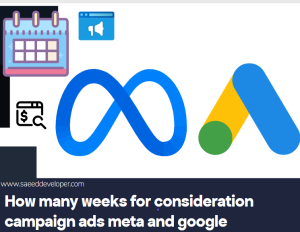Stop the spread of fake news on popular online platforms
Stop the spread of fake news on popular online platforms

Following the launch of our Fake News and Misinformation Advice Center in partnership with Google, we’ve provided an overview of how popular online platforms are working to stop the spread of fake news online.
How Twitter is helping people find reliable information: Stop the spread of fake news on popular online platforms
To limit the spread of misleading information about COVID-19, early in the year Guidance issued by Twitter on how he was going to address the issue and has since deleted a large number of questioned tweets and accounts.
Focus on credible information
In addition to this, it has tried to focus on credible information to make it easier to find on the platform. An example of this is the COVID-19 Tabin the Explore section that makes it easy to find the latest information about COVID-19. The tab includes curated pages that highlight the latest news, such as public service announcements, tweets from public health experts and journalists, as well as stories about how people cope with and help each other.
Additionally, the Events feature has also been designed to contain credible information about COVID-19 and is available at the top of the Start for All timeline in over 30 countries.
Campaigns and notices on the platform
Twitter has also launched a series of campaigns such as Message #ThinkBeforeSharingNotifying people before they share an article has led to more readings and more reported tweets. Through the implementation of this feature, they found that people open articles 40% more often after viewing the message, and that people opening articles before retweeting has increased by 33%.
Facebook Data Verification Initiative
To address the spread of misinformation on Facebook and Instagram, Facebook launched its first fact-checking initiative in December 2016. Since then, the program is now in a variety of countries around the world. Facebook works with a variety of independent certified fact-checking organizations in each country. The focus of the fact-checking program is “to identify and address viral misinformation, particularly outright hoaxes that are not based on fact.”
The program includes the following:
- Identify fake news by using a variety of signals, such as comments from people on Facebook
- Review content for accuracy
- Ensure fewer people see misinformation by rating content as fake, altered, or partially false so that it appears less prominently in feeds or stories, and rejecting ads with content that was rated accordingly.
- Take action against repeat offenders in the form of restrictions on your page or account
To learn more about the program, visit: Facebook Fact Check
In addition to this initiative, Facebook has also carried out the following actions:
- Through its fact-checking initiative since April 2020, warning labels added on approximately 50 million pieces of COVID-19 related content on Facebook
- Invested $ 100 million in the news industry to maintain reliable news reports
- A new guide has been implemented to ban product advertisements that refer to the coronavirus. in ways intended to create panic or to imply that your products guarantee a cure or prevent people from contracting it
- They are using AI technology to detect violations of community standardsin Facebook Groups (both public and private). Over the past year, Facebook removed more than 1 million groups for violating these policies.
- Updated their policies to allow them to remove misinformation that could lead to imminent physical harm or violence, and also to remove misinformation that could prevent people from voting, such as fake news related to dates, place, time, and voting methods
Google Invests to Help Fight Coronavirus Misinformation
In April 2020, Google announced that they were investing $ 6.5 million in funding for fact-checkers and non-profit organizations that fight disinformation. around the world, with an immediate focus on coronavirus.
YouTube COVID-19 Medical Misinformation Policy
YouTube introduced a policy addressing content that contradicts the World Health Organization (WHO) or the guidance of local health authorities on issues related to the treatment, prevention, diagnosis or transmission of Covid-19.
Address misinformation in Google products
Google also produced a White Paper in early 2019 outlining its commitment to address the intentional spread of misinformation in Google Search, Google News, YouTube, and their advertising systems. It focuses on three fundamental pillars:
- Improving products so they continue to make quality count;
- Counter malicious actors seeking to spread disinformation;
- Give people context about the information they see.
The White Paper It also explains how they work beyond our products to support a healthy journalism ecosystem, partner with civil society and researchers, and stay one step ahead of future risks.
TikTok uses a three-step approach to combat misinformation
To maintain misleading information and misleading content and accounts on the platform, TikTok launched three measures:
1. Improving your disinformation policies
The updated Community Guidelinesprohibit misinformation that may cause harm to the TikTok community or the general public, including content that misleads people about elections or other civic processes, content distributed through disinformation campaigns, and health misinformation . These updates were developed with industry experts, and the language reflects feedback from members of your Content Advisory Council..
2. Expanding reporting and fact-checking options
In addition to working with their Content Advisory Council, which includes experts on deep fakes, free speech, inclusive artificial intelligence, and more, they partnered with PolitiFact and Lead Stories to verify potential misinformation related to the 2020 U.S. elections.
3. Fight against foreign interference
Prior to the 2020 presidential elections, they also worked with the United States Anti-Foreign Influence Task Force (CFITF) to help stem the threat and dangers of foreign influence in the elections.
Learn more about these initiatives Here.
Snapchat works with publishers to provide reliable news
To help young people on your platform access trusted news, Discover section of Snapchatwhich is the professional news and entertainment section, carefully selected by an editorial team. They carefully consider who should appear in the section to ensure that the information presented is credible.






